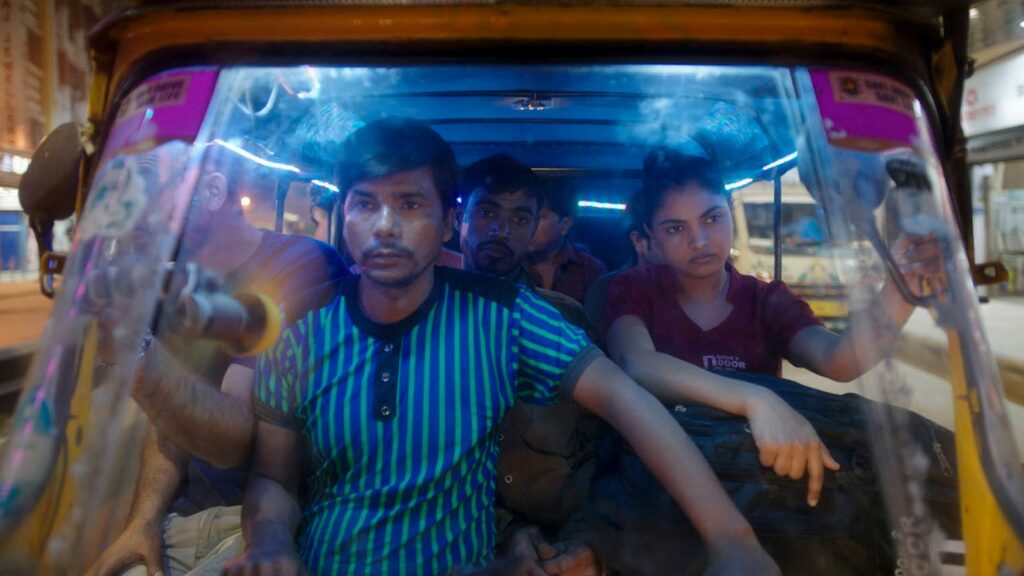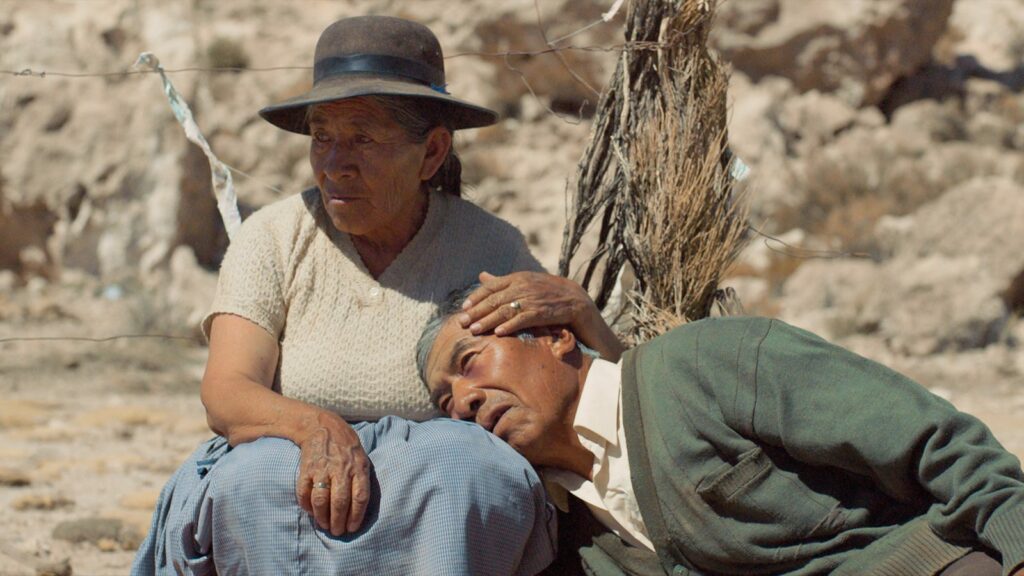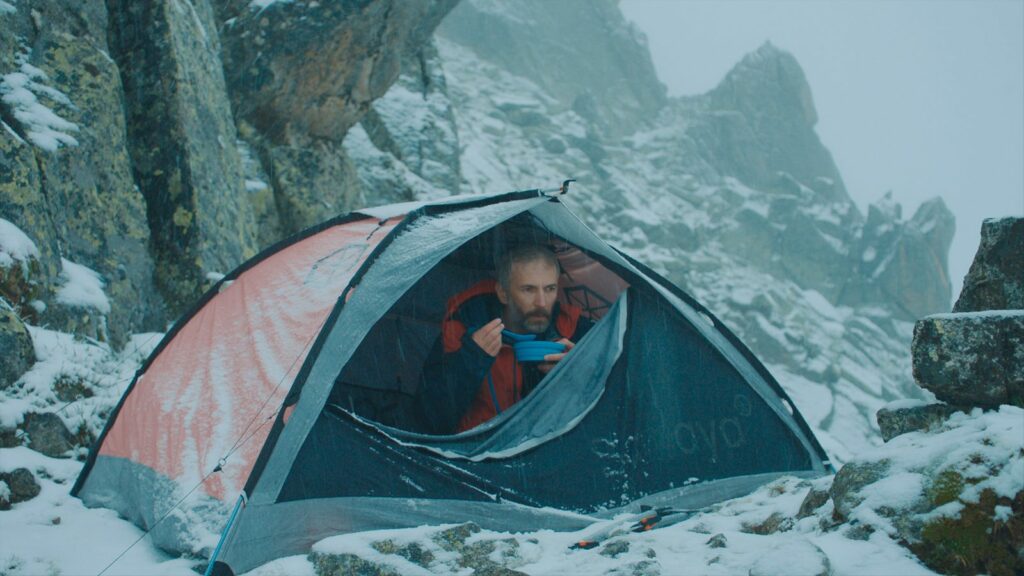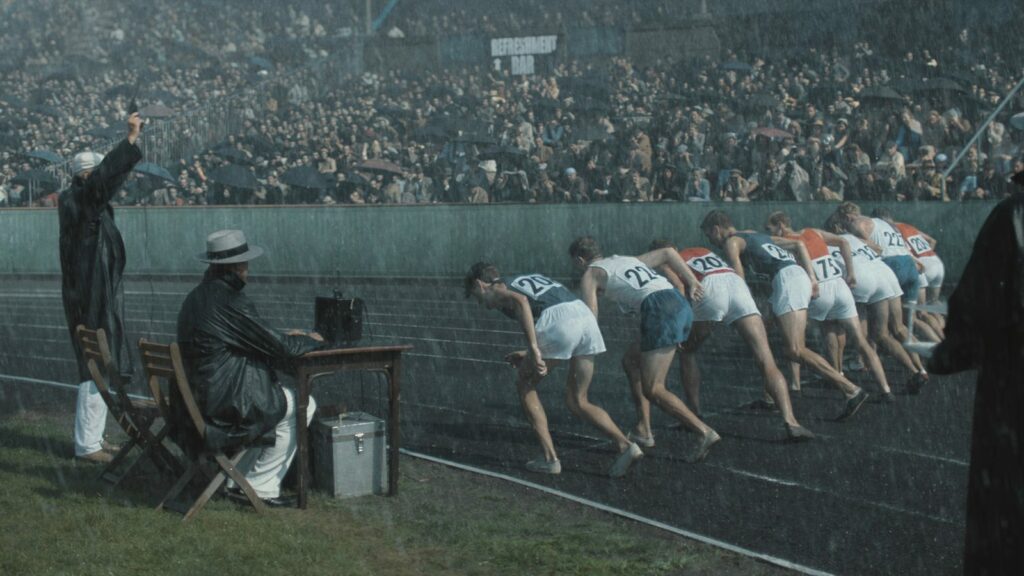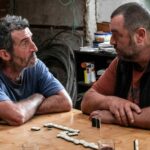“Once Upon A Time In Calcutta”
Review by John Le Blanc
Venice Film Festival 2021
| Nominee Venice Horizons Award | Best Film Aditya Vikram Sengupta |
One of the great pleasures of festivals like VIFF is the opportunity to watch films from faraway places that might easily be missed. Once Upon a Time in Calcutta effectively fulfills this role by immersing us in that city, where the old ways and modern development are in an uneasy tension. Unlike the other, more famous Once Upon a Time movies, this one is slow and, while gangsters appear, it plays down any violence, favoring an elegiac tone, reinforced by a discrete, slow-moving camera.
…….The story follows the intersecting lives of a number of characters with Ela, a former TV actress and now a co-host for an astrology show, at the center. Surrounding her are her ex-husband, Shishir (and his dog Elsa), Bubu (her step-brother, who controls a faded theatre where her deceased mother used to perform), Bhaskhar (a construction manager and her one-time lover), Pradipta (her current love interest and a higher up in a corrupt chit fund) and Raja (a young man Ela helped to get a job with the chit fund).
…….The film opens with the funeral pyre of Ela’s deceased daughter, placing us firmly within the film’s unrelenting sadness, and takes us to a number of the city’s interesting locales, both modern and decayed, especially focusing on Bubu’s dilapidated theatre, which becomes a symbol of the lost glory of old Calcutta as progress demolishes it.
………Throughout the film, a contemporary dance mix of a Rabindranath Tagore poem plays, ironically referring to new visions and old filth banished, as old Calcutta is swept away by corrupt developers.
…….The film requires an effort to watch, as the plot and characters can be difficult to follow, but the effort is worthwhile, with the lead performance by Sreelekha Mitra, as Ela, riveting.
A difficult film that rewards the viewer’s patience!
“Utama”
Review by John Le Blanc
Beijing International Film Festival 2022
| Winner Tiantian Award | Best Supporting Actor Santos Choque (Actor) Alma Films (Production Company) |
Utama (“Our Home”) focuses on the dying livelihoods of indigenous Quechua llama herders in the Bolivian highlands. The story is simply structured: an elderly Quechua couple (Virginio and Sisa, played by indigenous non-professionals) struggle to maintain their traditional way of life as a water drought and old age beset them.
………Their grandson (suggestively and perhaps ironically named Clever) arrives to convince them to move to the city (La Paz) but Virginio, who is ill with what seems like tuberculosis, stubbornly refuses, insisting on remaining with his llama herd and the land and dying there. Furthermore, his wife Sisa will be forced, as is the tradition, to remain and perish with him, setting up a classic confrontation between the old and the new, as he and Clever lock horns.
…….This battle of wills develops as one would expect, without twists or surprises, but is presented very powerfully, not only by the strong performances but also through the stunning images. As in the best examples of the classic western genre, the cinematography alternates between tight close-ups of the actors and long, wide shots of the landscape.
…….The landscape photography is particularly evocative, giving the desert surroundings a magical power that the technologically driven modern world (Clever’s cell phone and headphones) cannot fathom. Reinforcing the cinematography is a soundtrack of evocative noises performed on traditional instruments and two traditional songs. In spite of its narrow focus on the fate of this particular way of life, the film has a wider resonance (suggested by its title) as a specific example of wider concerns about modernization and climate change.
“The Mountain”
Review by John Le Blanc
Cannes Film Festival 2022
| Winner SACD Award | Directors’ Fortnight Thomas Salvador Naïla Guiguet |
Mountaineering films are very popular these days and science fiction has been popular for a long time, but The Mountain interestingly combines the two genres. Pierre (acted by the film’s director) is trapped in an unfeeling existence (his name is French for stone) as a salesman for a robot arm, an inhuman reflection of himself and the manufactured world that surrounds him, also effectively evoked by his modern apartment and the boring sales presentations he is forced to deliver.
…….That he is drawn away to the French Alps (the Chamonix area) is no surprise, but what happens as the plot develops is pleasantly strange, with the film effectively leading us across an intriguing terrain where we aren’t quite sure what lies around the next rock-face.
……..The build-up to the revelation is well-paced and the revelation itself is mysterious enough but not too much, enabling the viewer to develop productive thoughts about its meaning.
……The mountain photography is, unsurprisingly, magnificent but not merely gratuitous, as it reinforces the film’s theme of nature’s grandeur surpassing the achievements of human technology. In contrast, the relationship Pierre develops with a young, married female chef, who works in a restaurant at the top of the mountain is effectively understated, in line with the intended flat tone of the film.
……There is no earth-shattering climax here that dominates so much of science fiction, only a thawing of too long frozen lives.
Zatopek
Review by John Le Blanc
Biography feature films are a guilty pleasure. Since the viewer usually knows the story, more or less, they aren’t especially challenged going in. The pressure is off and they can relax and focus on how that story has been handled, while immersing themselves in a past that is somewhat familiar or, at least, transports them to some corner of history they would like to inhabit for a little while. ……Zatopek situates itself firmly within this tendency of the film biography, avoiding ambition and pretension as it presents the story of the famous Czech post WWII runner, Emil Zatopek, some of whose feats at distance running have yet to be equalled. As a frame for Zatopek’s life story, the film uses a 1960s visit to a retired Zatopek by the great Australian runner Ron Clark, searching for answers to his own running problems, which, at first, seems to be merely a plot device, but becomes surprisingly effective by the end of the film.
…….A major focus of the film, of course, is the repressive socialist regime that ruled Czechoslovakia from the end of WWII well into the 1960s, with Zatopek as its victim, but, interestingly, in some ways a willing one, complicating the usual clash between democratic freedom and Soviet ideology.
………Also of interest is the relationship between Zatopek and his fellow athlete wife, which develops in unexpected ways. Ultimately, Zatopek proves to be a fairly complex character, making a film that might be seen as too superficial worthy of a closer look. The film is never flashy in its cinematography, direction or acting, but somehow this suits its theme of the ultimately ordinary problems of its extraordinary talented main character. At 2 hours and ten minutes, the film is a bit long: it could cut down on scenes of Zatopek running, but, nevertheless, it keeps the viewer engaged throughout its length.

